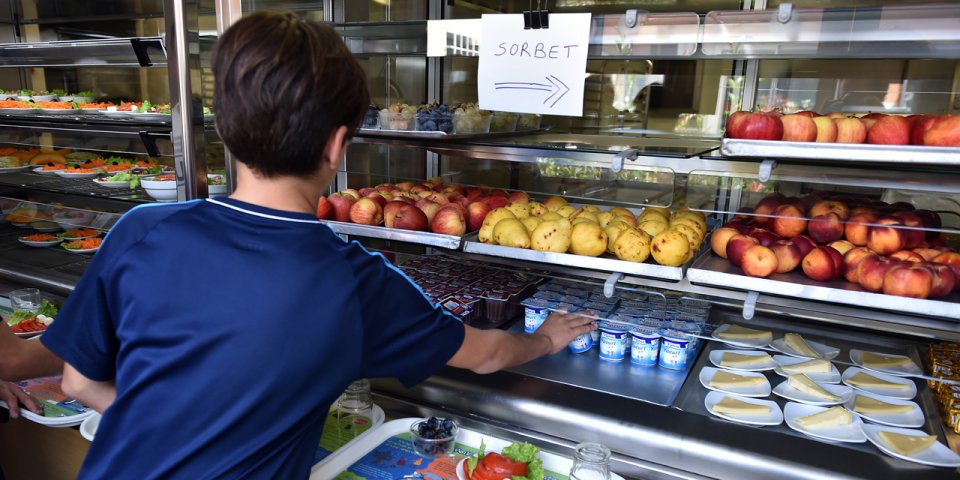
Scale of the project: neighbourhood
Urban density in which the NbS is implemented: low (suburb at the limit with
rural areas, etc.)
- [Organic] food production
- Supply school canteen with organic food products
- Local food network
- Environmental education
- 2sd rank objectives: Research/experiment, social dynamic
The project has two complementary components:
- An urban farm:
Vegetable production (surface of 4+2 ha) and food process supply for the school canteens of the city (around 1200 meals) => 85% of the fruit and vegetables consumed - A territorial project:
Environmental education.
Help to farming development (farming land protection by modifying the local urbanim plan, subsidizing creation).
- Improve connectivity and functionality of green and blue infrastructures
- Increased cultural richness and biodiversity
- Enhancing sustainable urbanisation
- Changing image of the urban environment
- Creation of green jobs relating to construction & maintenance of NBS
- Increase awareness of NBS solution & their effectiveness and co benefits
- Increase communities’ sense of ownership
- Increase social interaction
- Increase well-being
- Provision of health benefits
- Social inclusion
- Social learning about location & importance of NBS
BUSINESS MODEL:
Business cluster: Organizational
Business model: Re-purpose the business for society/environment
The business model is based on the ownership and the management of the whole chain of supply of vegetables of the municipal school canteen, by the municipality.
Temporal perspective
Expected time for the NbS to become fully effective after its implementation: short (immediately to few months)
Feedback: The project has already been adapted to new requisites by adding a building extension.
Expected life time of the intervention: more than 30 years
Dates (for project delivered): 2010
The municipality used its pre-emptive right to purchase the farmland.
The municipality has modified the local urbanism plan at the whole scale of the municipality territory to preserve farmland.
Global (estimated) cost of the project: Unknow
Financing mechanism: cluster1 public financing
The urban farm is partly financed by the families' contribution to the canteen, and partly by the municipality. The business model is based on the ownership and the management of the whole chain of supply of vegetables of the municipal school canteen, by the municipality.
- Object shapes
- On the Ground
- Structures characterized by food and resource production
- Urban farms
Philippe Bodénan (philippe.bodenan@cerema.fr - https://www.cerema.fr/fr)
Maison de l'Administration Nouvelle
9 Rue René Viviani 44200 Nantes
Further information
Nature4Cities (https://www.nature4cities.eu/) aims to develop a knowledge diffusion around Nature-Based Solution (NbS) and a decision support platform through new collaborative models.
This project is part of the Nature4Cities's pioneer case studies database, it will feed the observatory, NbS pre-selection and replication tools, gathered into the Geocluster4NBS.
This project was chosen as a pioneer case study for the following reasons: the porject is one of the only cases of urban farm directly managed and governed by a municipality.
Nature4Cities project has received funding from the European Union’s Horizon 2020 research and innovation program under grant agreement No 730468.


